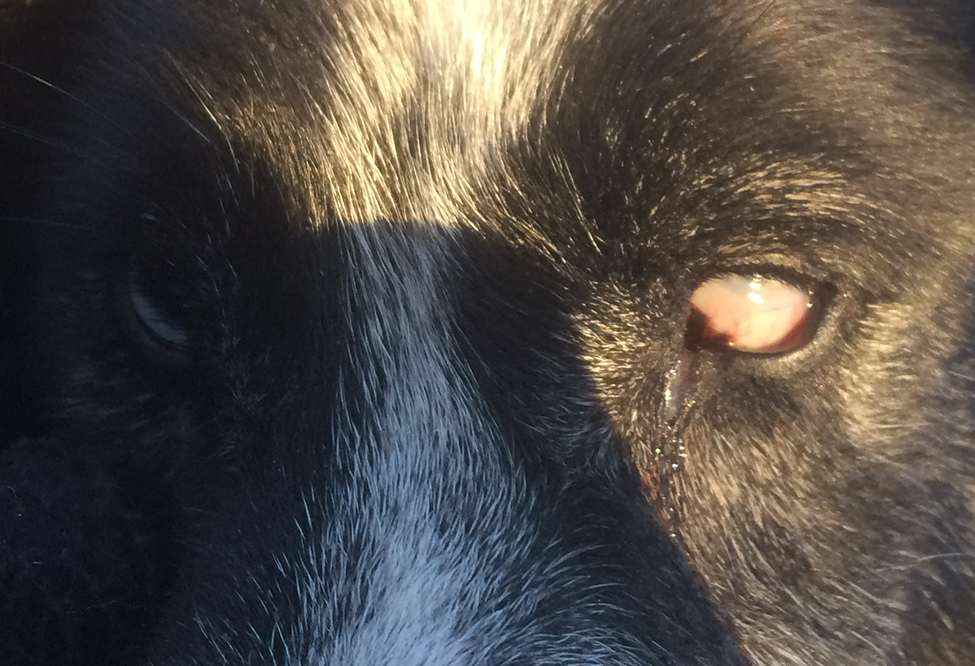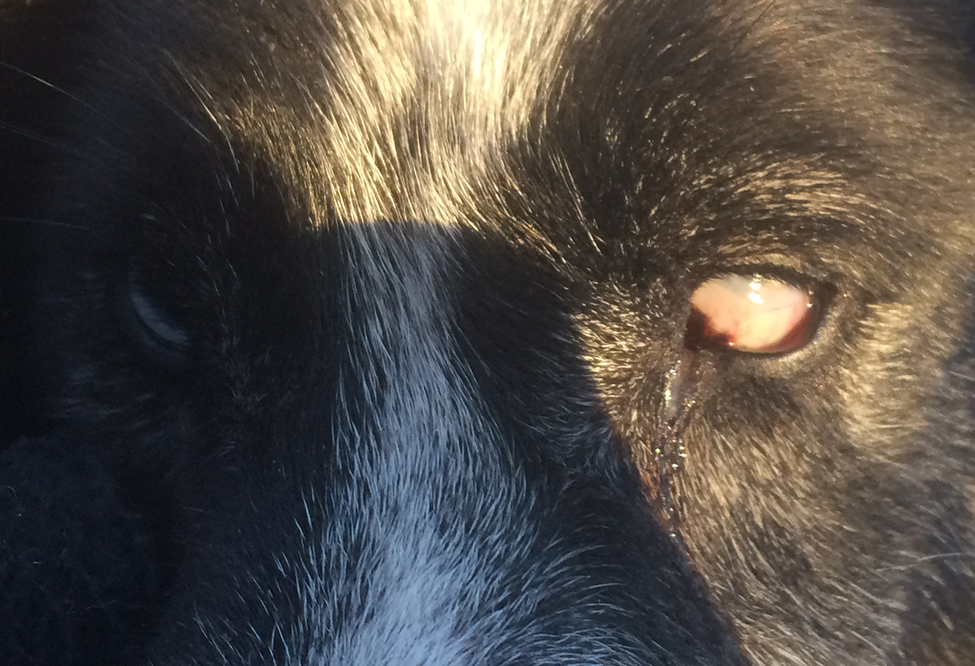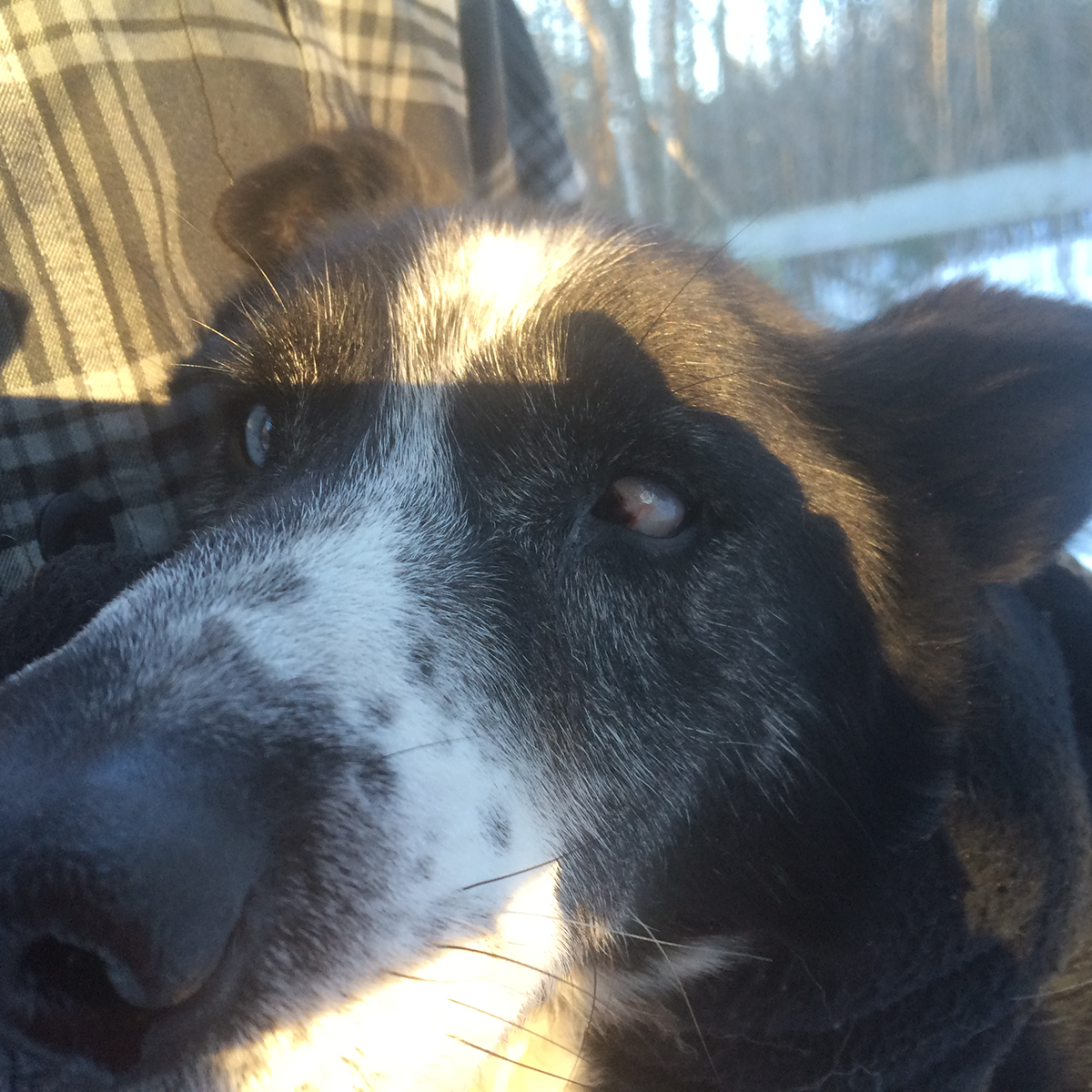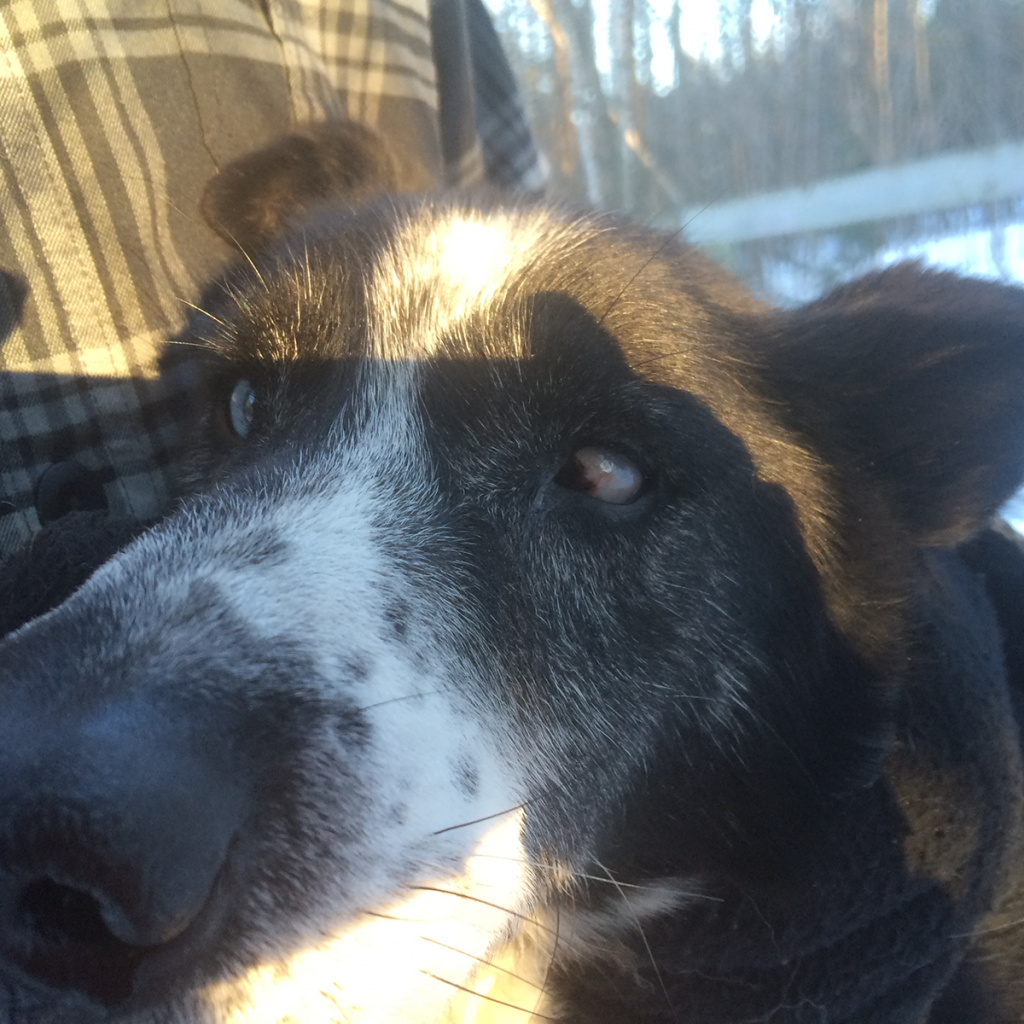On Wed. Feb 17 we came home from a early evening run. When feeding Roo dinner, after the run, I saw that her third eye was covering 1/2 of her eyeball. It was still like that the next morning so we brought her to the vet. The vet did a couple of tests and we think he said he didn’t think it was neurological. He gave us some eye drops with antibiotics, Maxitrol 2 drops every 8 hours, and told us if she wasn’t better in three days give him a call. Since three days would be on Sunday, and it wasn’t any better on Sat., we called on Saturday. He said that perhaps it was neurological. We asked to be referred to a specialist, and hopefully he’ll get back to us on Monday with that information.
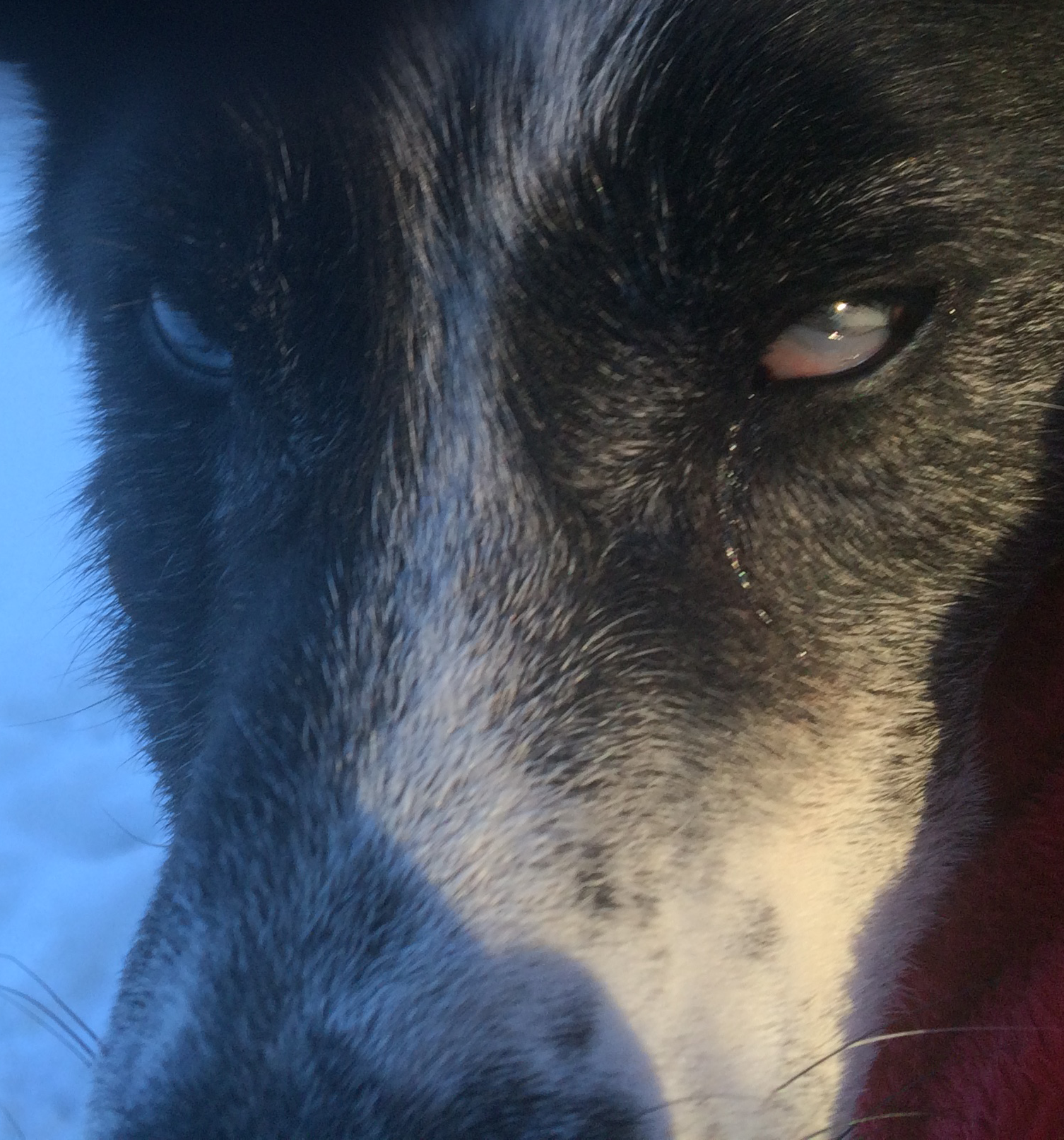 Coincidentally, or perhaps not coincidentally, we brought Roo to the vet the two weeks before because she wasn’t eating. The doctor took x-rays and blood work. Her blood work was normal. He thought her heart was a little big, so sent the x-rays to a radiologist. The radiologist said everything was normal.
Coincidentally, or perhaps not coincidentally, we brought Roo to the vet the two weeks before because she wasn’t eating. The doctor took x-rays and blood work. Her blood work was normal. He thought her heart was a little big, so sent the x-rays to a radiologist. The radiologist said everything was normal.
Greg and I thought that perhaps something was wrong with her mouth/teeth because she yelped when we touched her mouth. We brought her back and the vet sedated her and didn’t see anything wrong with her mouth/teeth. He thought perhaps it was a TMJ problem. This seemed reasonable to us because the girls (Nikki and Roo) were playing around with a hard bone. Perhaps she bit it too hard??
After hours of searching on the net, my (Ilana’s) diagnosis is Horner’s Syndrome. I didn’t think it was Horner’s Syndrome at first because on the first night when we came home from the run her third eyelid was showing and she didn’t have the other symptoms– now she does.
- Her pupil is constricted
- Her eye appears sunken
- The third eyelid is prolapsed
It’s Sunday night as I write this, so it probably will be a few days until we find out what’s going on. Apparently,Horner’s Syndrome has a 40-50% chance of being idiopathic (no known cause). If it is idiopathic it should spontaneously get better in 6-8 weeks. If it’s not idiopathic it could be anything .

